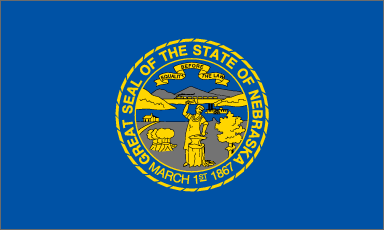On June 25, 2020, Nebraskans for Responsible Lending submitted over 120,000 signatures for its initiative that would limit all fees charged by payday lenders to an annual interest rate of 36%. Nebraska law currently allows delayed deposit services licensees to charge a fee of no more than 15% of the amount loaned and limits total loan amounts to $500 and loan terms to a maximum of 34 days. In Nebraska law, payday loan services are called delayed deposit services.
Across the country, 16 states and the District of Columbia have enacted a 36% annual interest rate cap for payday lenders. In 2018, a similar measure was approved in Colorado.
In Nebraska, the number of signatures required to qualify an initiated state statute for the ballot is equal to 7% of registered voters as of the deadline for filing signatures. According to the June 2020 voter registration report, there were a total of 1,216,692 registered voters in Nebraska at the time of the state’s signature deadline. This means that a total of 85,168 valid signatures are required to qualify this initiative for the ballot, which means Nebraskans for Responsible Lending needs a signature validity rate of approximately 71% for the initiative to qualify for the ballot.
Because of the unique signature requirement based on registered voters, Nebraska is also the only state where petition sponsors cannot know the exact number of signatures required until they are submitted. Nebraska law also features a distribution requirement mandating that petitions contain signatures from 5% of the registered voters in each of two-fifths (38) of Nebraska’s 93 counties.
The state legislature has referred two constitutional amendments to the November 2020 ballot. The signature submission deadline for 2020 Nebraska citizen initiatives is July 3.
From 1996 through 2018, there have been 73 statewide measures on the ballot in Nebraska. Thirty-nine (53%) were approved. Of the 73 total measures, 17 were ballot initiatives. Eight of the 17 ballot initiatives (47%) were approved, and nine (53%) were defeated.


